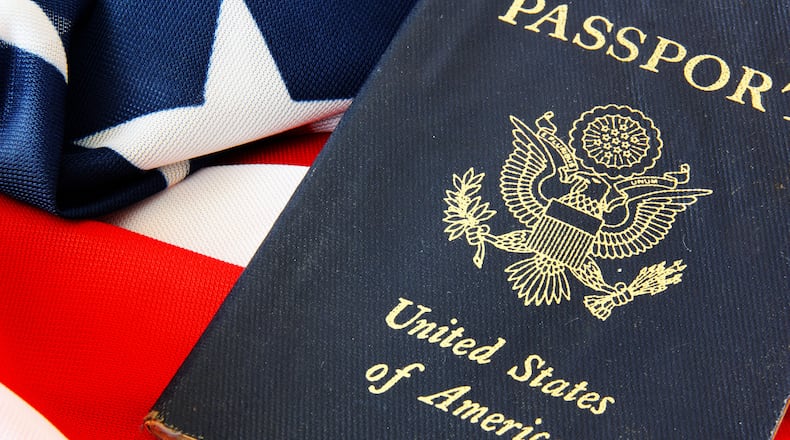After a heated debate, the state senate agreed to a $20,000 annual limit on the amount of personal compensation superior court clerks and probate judges can earn for processing passport fees through their offices.
Senate Bill 19, proposed by Sen. Kay Kirkpatrick who represents parts of Cobb County, originally prohibited them from taking any of the fees as personal pay.
But after several amendments, the bill caps the supplement at $20,000 while also allowing county governments to negotiate a different pay cap, which Kirkpatrick said gives rural counties “room for flexibility” in offering more if needed. It also requires the funds to go through payroll and be disclosed to the county government.
Under current state law, superior court clerks can legally take the $35 processing fee paid per passport application as personal compensation.
The Atlanta Journal-Constitution found in an investigation last year that Cobb County Superior Court Clerk Connie Taylor had personally received over $425,000 in passport processing and expedited shipping fees during her first two years in office — on top of her $170,000 salary.
When the AJC requested passport fee records under the Georgia Open Records Act, Taylor allegedly ordered an employee to delete them instead, according to a whistleblower complaint. In November, the Georgia Bureau of Investigation opened an investigation in to Taylor’s office, which is ongoing.
Some senators raised concerns that the bill was motivated by recent news coverage of the issue, and Sen. Harold Jones II (D-Augusta) said that the way the media reported on the controversial practice skewed public opinion despite it being legal.
“‘Pocketing money’ seems like you’re doing something nefarious, and to me, that’s just not right,” Jones said to the AJC.
He said the media focused more on the clerks in DeKalb, Gwinnett, Fulton and Cobb counties, all of whom are Black women, even though other clerks throughout the state also earn the supplemental income.
However, those metro counties process significantly more passport applications than rural counties and, therefore, the clerks earn significantly more through the fees.
Senators opposed to the bill also suggested lawmakers take more time to examine how to properly address the issue.
“I want to make sure that we’re doing stuff right and not doing stuff reactionary,” said Sen. Mike Dugan.
Kirkpatrick said the bill is meant to “bring some transparency to this and make sure these monies are disclosed.”
The bill passed 34-19 and now heads to the House of Representatives for consideration.
About the Author
Keep Reading
The Latest
Featured




